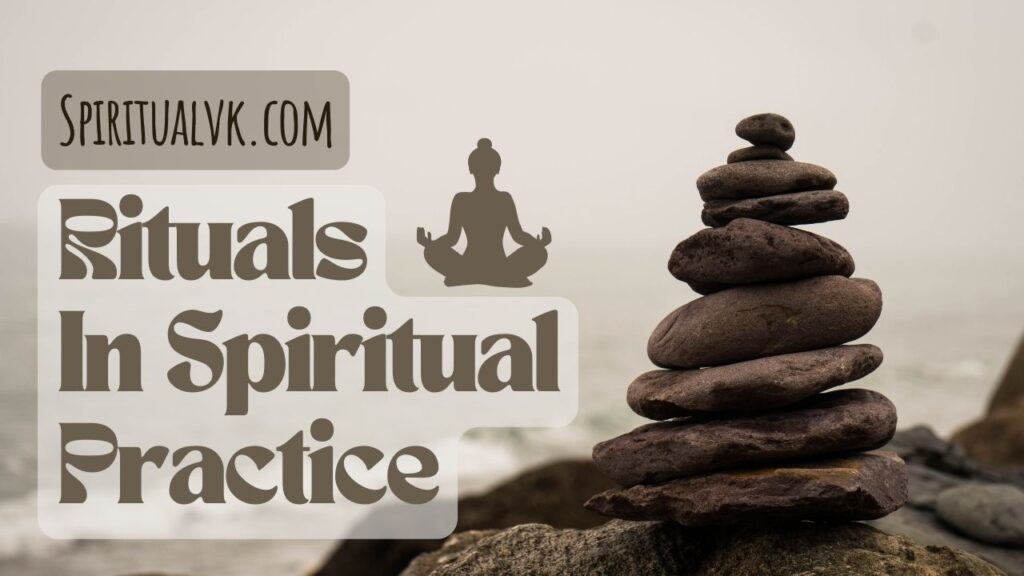Hindu philosophy, one of the oldest and most intricate systems of thought, encompasses a wide range of beliefs and practices aimed at understanding the nature of existence and the ultimate purpose of life. Among its core tenets are the concepts of karma and moksha, which together outline the spiritual journey an individual undertakes in pursuit of liberation. This article delves into the profound philosophical underpinnings of karma and moksha, exploring their significance, interrelation, and the path they prescribe for attaining spiritual freedom.

Understanding Karma
Definition and Origins
Karma, derived from the Sanskrit word “karman,” meaning action or deed, refers to the law of cause and effect that governs the universe. According to Hindu philosophy, every action thought, and intention generates a corresponding reaction, influencing an individual’s future experiences. This principle is deeply rooted in the Vedic scriptures, particularly the Upanishads and the Bhagavad Gita, which emphasize the moral and ethical dimensions of human actions.
Types of Karma
Hindu philosophy classifies karma into three broad categories:
- Sanchita Karma: This is the accumulated karma from all previous lifetimes. It represents the totality of an individual’s actions that have yet to bear fruit.
- Prarabdha Karma: This portion of sanchita karma is allotted for a particular lifetime. It is the karma that has already begun to manifest and will shape the circumstances and events of the current life.
- Kriyamana Karma: Also known as agami or vartamana karma, this refers to the actions performed in the present lifetime. These actions will contribute to future karmic consequences.
The Role of Dharma
Dharma, often translated as righteousness or duty, plays a crucial role in the concept of karma. It denotes the ethical and moral obligations that an individual must fulfill according to their stage of life (ashrama) and social order (varna). Adhering to one’s dharma generates positive karma, while neglecting it leads to negative consequences. The interplay between karma and dharma underscores the importance of living a virtuous and ethical life.
The Path to Moksha
Definition and Significance
Moksha, derived from the Sanskrit word “mukti,” meaning liberation or release, represents the ultimate goal of human existence in Hindu philosophy. It signifies the liberation of the soul (atman) from the cycle of birth, death, and rebirth (samsara). Achieving moksha entails transcending the limitations of the material world and realizing one’s true nature, which is identical to the supreme reality (Brahman).
Paths to Liberation
Hindu philosophy outlines several paths (yogas) that lead to moksha, each catering to different temperaments and inclinations:
- Karma Yoga: The path of selfless action involves performing one’s duties without attachment to the results. By dedicating all actions to the divine and relinquishing personal desires, individuals purify their minds and gradually attain liberation.
- Bhakti Yoga: The path of devotion emphasizes love and surrender to a personal deity. Through practices such as prayer, chanting, and worship, individuals cultivate a deep sense of connection with the divine, dissolving the ego and achieving union with God.
- Jnana Yoga: The path of knowledge involves the study of sacred texts and introspective contemplation. By discerning the true nature of reality and overcoming ignorance, individuals realize their oneness with Brahman and attain liberation.
- Raja Yoga: The path of meditation and discipline focuses on controlling the mind and senses. Through practices such as meditation, breath control (pranayama), and ethical conduct (yamas and niyamas), individuals attain inner stillness and self-realization.

Interrelation of Karma and Moksha
The Karmic Cycle and Samsara
The cycle of karma and samsara is a fundamental aspect of Hindu philosophy. According to this belief, the soul undergoes countless births and deaths, each life shaped by the accumulated karma from previous existences. This perpetual cycle of rebirth, driven by desires and actions, is marked by suffering and ignorance.
Breaking the Cycle
The ultimate aim of Hindu philosophy is to break free from this cycle and attain moksha. The process involves purifying the mind, eradicating desires, and realizing the true nature of the self. By transcending the ego and recognizing the unity of all existence, individuals liberate themselves from the bondage of karma and samsara.
Philosophical Perspectives
Advaita Vedanta
Advaita Vedanta, one of the most influential schools of Hindu philosophy, posits that the individual soul (atman) and the supreme reality (Brahman) are identical. According to this non-dualistic perspective, ignorance (avidya) creates the illusion of separateness, leading to the cycle of karma and samsara. Liberation is achieved through self-knowledge (atma-jnana), which reveals the inherent unity of all existence.
Dvaita Vedanta
Dvaita Vedanta, in contrast, asserts a dualistic view, distinguishing between the individual soul and the supreme reality. According to this school, liberation is attained through unwavering devotion (bhakti) and the grace of God. The soul retains its individuality even in the liberated state, experiencing eternal communion with the divine.
Vishishtadvaita Vedanta
Vishishtadvaita Vedanta presents a qualified non-dualism, recognizing both unity and diversity within the divine. It teaches that the individual soul is a distinct part of the supreme reality, sharing in its essence but retaining its individuality. Liberation involves realizing this relationship and attaining eternal service to God.
Practical Implications
Ethical Living
The principles of karma and moksha have profound implications for ethical living. By understanding the law of cause and effect, individuals are encouraged to act with compassion, integrity, and responsibility. Ethical conduct becomes a means of purifying the mind and creating positive karma, ultimately aiding in the pursuit of liberation.
Meditation and Self-Reflection
The path to moksha emphasizes the importance of meditation and self-reflection. Regular practice of meditation helps quiet the mind, reduce desires, and cultivate inner peace. Self-reflection allows individuals to examine their actions and intentions, aligning them with higher spiritual goals.
Detachment and Renunciation
Detachment from material possessions and desires is a key aspect of the spiritual journey. Renunciation does not imply abandoning worldly responsibilities but rather cultivating an attitude of non-attachment. By performing actions selflessly and without expectation of rewards, individuals move closer to liberation.
Conclusion
The spiritual journey from karma to moksha in Hindu philosophy is a profound exploration of the nature of existence, the purpose of life, and the path to ultimate liberation. Through the interplay of actions and their consequences, ethical living, and various paths to self-realization, Hindu philosophy offers a comprehensive framework for understanding and transcending the human condition. The quest for moksha, driven by a deep yearning for freedom and union with the divine, remains a timeless and universal aspiration, inspiring countless individuals to embark on the transformative journey of self-discovery and spiritual awakening.


